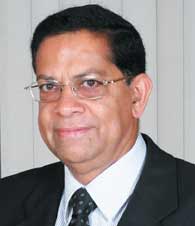|
Executive Interviews: Interview with Tapan Mitra on Managing Downturn without Downsizing
September 2009
-
By Dr. Nagendra V Chowdary
 Tapan Mitra
Tapan Mitra Tapan Mitra, Chief of Human Resources, Apollo Tyres 
Is there possibly a way to manage downturn without downsizing? Of course, many argue that it’s not downsizing, but rather right sizing. Are there any illustrative examples of either companies or countries not having gone in for downsizing during the previous crises?
There certainly is. Once again, not the easiest of options. However it depends on what is the goal one is looking to achieve that will dictate the process. Are we looking at massive cost cuts only in the human resources area? Are we looking at overall reigning in of costs, which will also impact the HR domain? What are our long term plans? By when do we expect to see an upturn? And of course what is the financial position of the company. The last will in fact be a key factor to work out many related details. No major company in India has undertaken the kind of dramatic downsizing that you are referring to. Circumstances have been kind to us but it also probably shows that our companies are quite robust and our people are flexible and innovative in their approach to HR and manpower issues. What most companies, like Apollo, have done is to reduce costs by shutting production for a while, cutting back on the work week, by cutting back on travel costs and by deferring a certain amount of high financial impact training programs. The most short term thinking is to cancel training and recruitment of good quality people externally. Should companies stop hiring fresh talent? Should they stop imparting the crucial skills required for their employees to become quality employees?
On a short term, say a quarter or two, it is possible and often desirable to curtail training spends. I am saying curtail, since some training – lower cost or ongoing modules or high impact sessions – could continue. Over a longer term, it is not really possible to survive, or do well, if we completely do away with trainings. This is one area which enables the company to become future ready and is a major retention tool. Also hiring fresh talent is a need-based item. If there is a critical need in a certain area, which cannot be filled internally, companies rarely have an option but to hire, even if that means doing so in a downturn. At Apollo Tyres, we ourselves have hired talent during this slowdown. What should be new role of HR departments? How can HR departments take a leading and influential role in the business response to the economic downturn?
HR, anywhere and everywhere needs to be sensitive to all situations, but proactive and swift. People in HR need to understand and balance their skills between two sets of needs – those of the individual employee and those of the company as a whole. Most HR departments play a major balancing role between these two, to seek out the most effective and least painful method. In today’s world, people in HR departments have to understand business well. How the business is done, the key factors affecting it, the environment, the regulatory atmosphere, etc. If HR personnel can do this well, their ability to influence business, and often guide business decisions would increase. And definitely during times of crisis, HR’s role cannot be over-emphasized. What is the role of leadership in navigating the companies through the troubled times, ensuring that their companies do not go down under and also their employee morale is kept high?
Leaders make or break companies. Good leaders create lasting companies and leave a legacy. There is a huge difference between the two and the value of good, strong and effective leadership, one that has a human face and is sensitive, is enormous in today’s world where people are our real assets. At Apollo, we have been fortunate to have not just one or two such leaders but many within the management structure, who are in sync with the company’s needs, feel for their people and are also good communicators.
|
The interview was conducted by Dr. Nagendra V Chowdary, Consulting Editor,
Effective Executive and Dean, IBSCDC, Hyderabad. This interview was originally published in Effective Executive, Icfai University
Press, Sep 2009. Copyright © Sep 2009, IBSCDC
No part of this publication may be copied, reproduced or distributed, stored in a
retrieval system, used in a spreadsheet, or transmitted in any form or medium –
electronic, mechanical, photocopying, recording, or otherwise – without the permission
of IBSCDC. |
